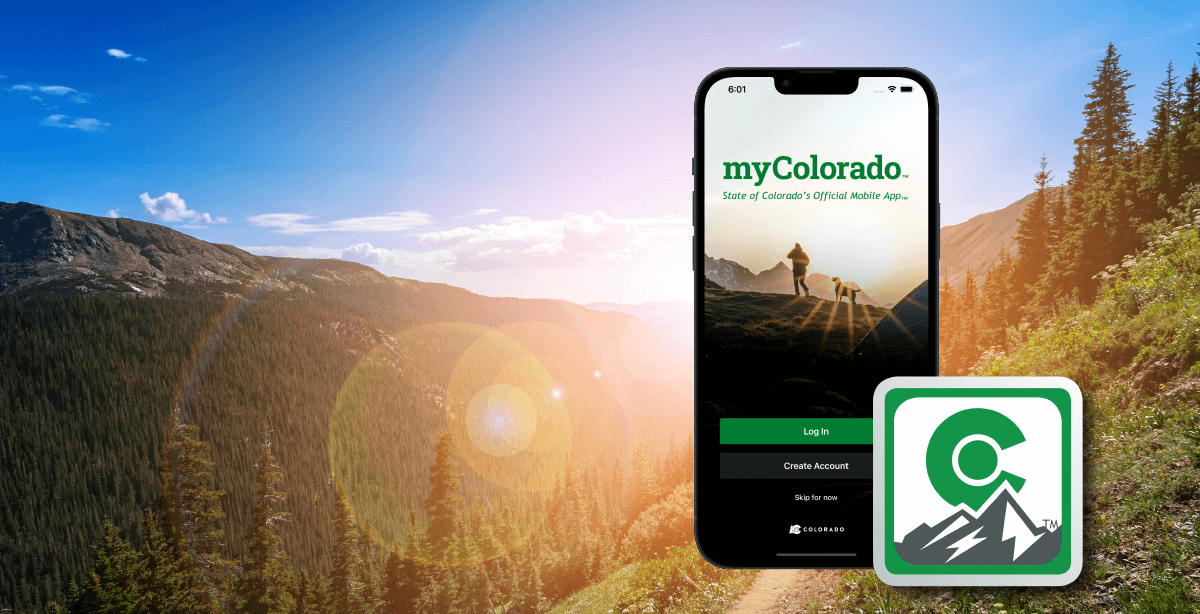Nelnet Government Services Brings a User-Friendly Mobile App to All Colorado Residents
According to the Centers for Disease Control, 25.7% of the U.S. population reports living with at least one disability, including physical, speech, cognitive, and neurological disabilities. These disabilities can impact an individual’s ability to access digital content in any of several ways: visual, auditory, mobility, or cognitive—or in multiple of these aspects.
Helping to make digital content accessible to everyone is not only good for business and ethically responsible, but it also enhances customer experience and meets regulatory requirements. Some state and municipal governments are enacting laws that require agencies to comply with Section 508 of the Rehabilitation Act of 1973, which requires all Federal electronic content to be accessible and the new Department of Justice rule under Title II of the Americans with Disabilities Act (ADA), 1990, which requires all state and municipal government electronic content to be accessible per WCAG 2.1 A & AA success criterion.
Looking ahead, there are additional Web Content Accessibility Guidelines (currently WCAG 2.2 and, going forward, WCAG 3.0) from the World Wide Web Consortium that are recommended beyond Title II. The field is constantly evolving, identifying new ways to make content easily accessible to all users. This means having development teams with accessibility expertise is increasingly valuable.
Overview
The state of Colorado has legislation (HB21-1110) requiring that all state agencies’ web applications be compliant with Section 508 and Title II by July 1, 2024. In 2022, Nelnet Government Services won an accessibility pool contract that made the organization’s accessibility team eligible to provide their services to the state of Colorado and its agencies. Later that year, the Colorado Office for Information Technology (OIT) reached out to Nelnet Government Services for assistance with making their award-winning mobile app accessible for all state residents in both iOS and Android.
The Challenge
Like most mobile apps that are helpful in simplifying our lives, the myColorado app is quite complex. The mobile app simplifies many types of licensing and recordkeeping for state residents and officials, including providing secure, convenient access to state services such as electronic versions of your driver’s license or state-issued identification card, vaccination record, wildlife licenses, and more. It allows residents to complete 20 DMV services; apply for medical, food, cash, and early childhood assistance; search for state job listings; store vehicle registrations, insurance cards, and other documents; and more.
For OIT to comply with the Colorado law by the rapidly approaching deadline with a complex app used by over 1 million users without in-house accessibility expertise would have been nearly impossible. Colorado’s OIT chose to leverage Nelnet’s team of accessibility and mobile development experts to help ensure that the app was accessible and usable to those with disabilities.
Implementation
Nelnet Government Services provided team members from the Accessibility Engineering and iOS and Android Developer teams to OIT to help make myColorado accessible. The project began with providing an audit of accessibility needs for the login and registration page and proceeded from there.
At various times, anywhere from 10 to 20 experts from Nelnet Government Services were embedded within the OIT development team. Working together, they provided full auditing and remediation services to make the entire myColorado app WCAG compliant.
Results
Thanks to the strong collaboration between Nelnet Government Services and the myColorado team, accessibility enhancements were successfully implemented across the app—broadening usability for all Coloradans, including those who rely on assistive technologies.
During the initial accessibility review, several opportunities for improvement were identified—many of which presented challenges for users navigating the app with assistive tools. In the remediation process, the following changes were made:
- Entire screens and workflows were updated to support accessibility for users of screen readers, switch access, voice recognition software, and other assistive technologies—ensuring inclusive access to essential services.
- Labels were enhanced or added to clarify the purpose of buttons and form fields for screen reader users.
- Reading and tabbing order was optimized to support a smooth and logical experience for keyboard and assistive technology users.
- Visual contrast and touch target sizes were adjusted to improve readability and ease of interaction across all devices.
- Headings were introduced or revised to help users better understand screen structure and navigate efficiently with screen readers.
- Interactive controls—including links, buttons, and form fields—were made fully accessible and responsive, supporting seamless user interaction.
- Reflow improvements were implemented to ensure that content and controls remained visible and functional when font sizes were increased or devices were rotated.
These enhancements were made as part of Nelnet Government Services’ accessibility engagement, aligning the app with WCAG 2.1 Level AA standards and improving equitable access for all users. Additional accessibility improvements delivered through this partnership included:
- Login and account creation: The account creation and login journeys were updated to support accessible design best practices and meet WCAG 2.1 Level AA compliance.
- Disability identifier. Qualifying Coloradans have the option to add a disability identifier to their driver’s license, helping first responders recognize and better support individuals who may communicate differently due to cognitive, neurological, psychological, or physical disabilities, specific sensory needs, or chronic health conditions.
Apart from helping to support the OIT’s development process, we’ve really helped them evaluate the myColorado app, understand where they have accessibility issues, and then bring those issues into compliance so that the app is now accessible to all Colorado users as opposed to just a specific set. It’s about making the dreams of everyone possible.
It was important to OIT that users have an equitable experience. Nelnet Government Services IT Accessibility Team Lead Joanne Hawley pointed out, “The myColorado team wanted to make sure, for example, that iOS wasn’t the better version of the app, with the Android version lagging behind.”
Sometimes the best way to show someone how to fix something that’s wrong is to show them how to do it right from the beginning. Duggar said Nelnet Government Services tries to be a good accessibility partner, teaching how to add accessibility from the start—even when they’re doing auditing and remediation. To that end, she adds, “I think we’ve helped OIT better understand the accessibility space and be more capable of building accessible solutions initially.”
John Vialpando is Nelnet Government Services Director, Business Development. He emphasized, “While the return on investment for Nelnet is tough to calculate, the true reward has been in helping all Colorado state residents access the mobile app that simplifies their lives.”
Learn More
Discover how Nelnet Government Services’ highly experienced Accessibility team can identify and mitigate accessibility issues or educate your team to help deliver customer-centric services. Contact us today.



